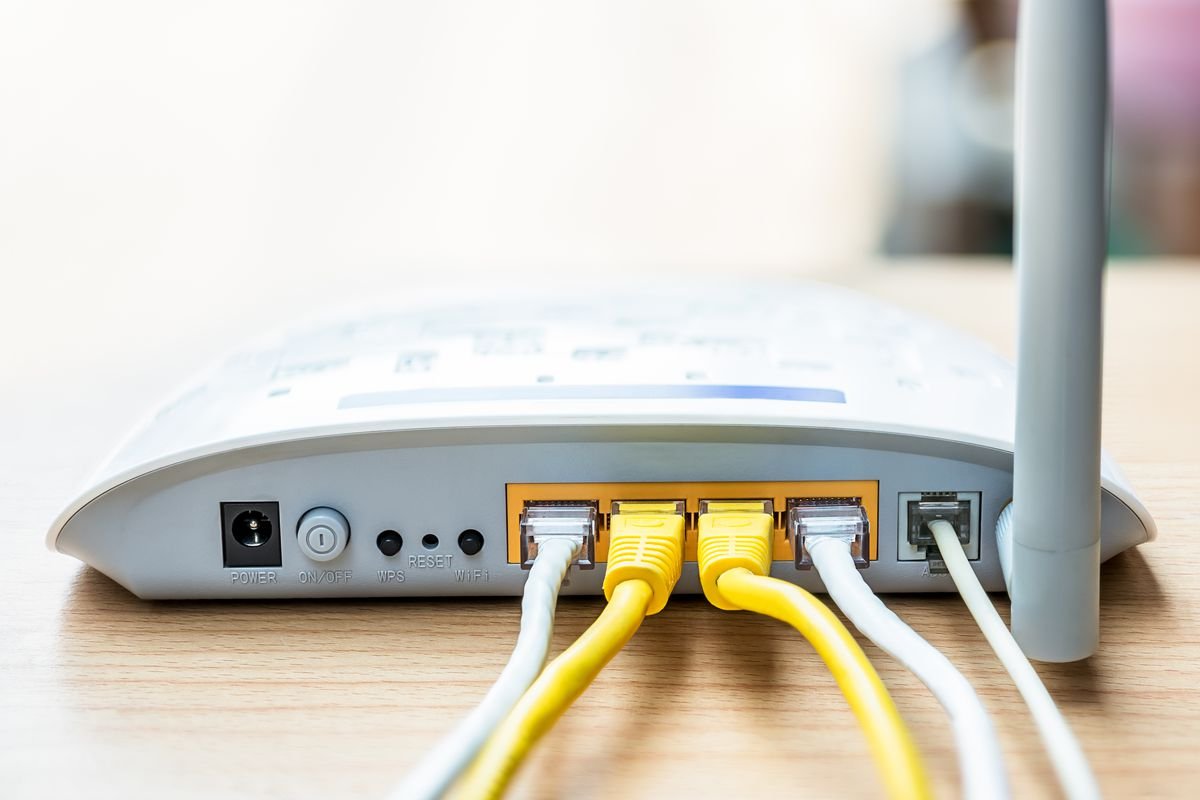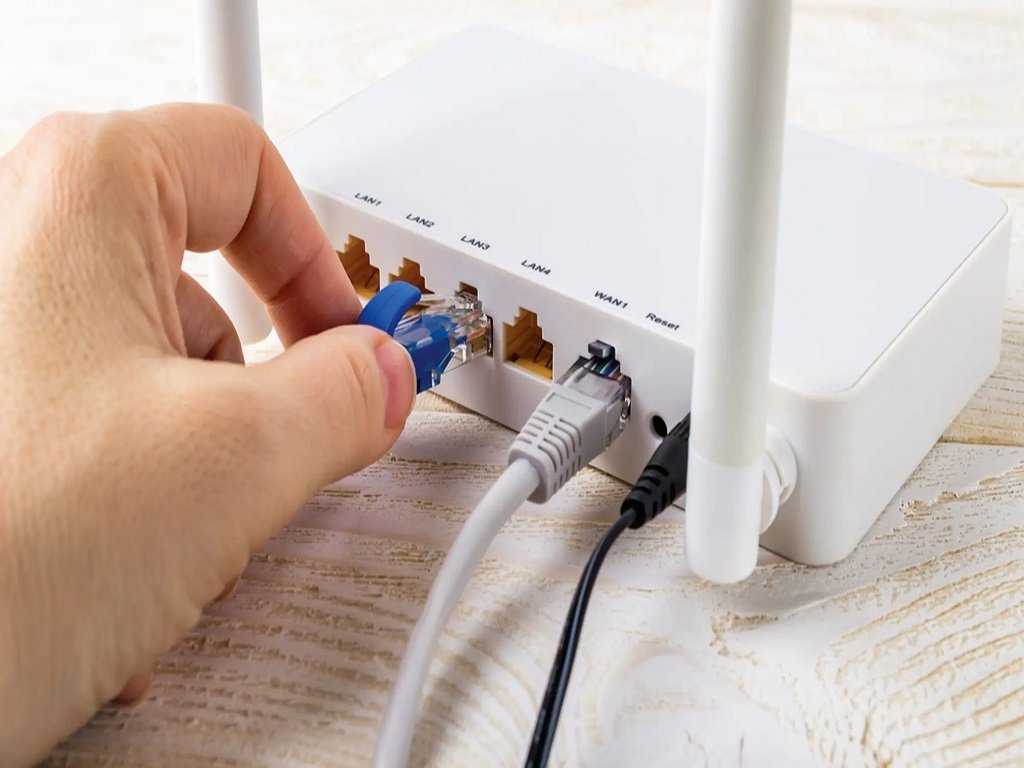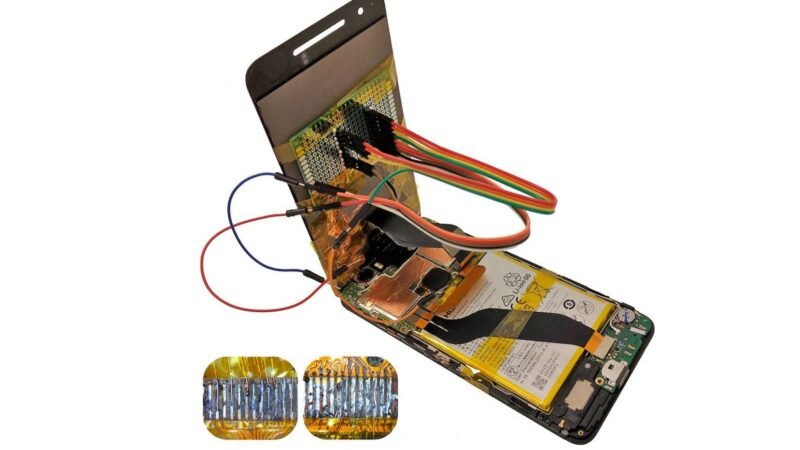You Should Turn Off Your WiFi Router at Night?

According to experts, if you make it a habit to turn off your wifi router at night, you will significantly reduce your daily EMF exposure. In many homes, WiFi routers are a significant source of EMF pollution. And since most people leave their routers on 24 hours a day, 7 days a week, this results in a significant cumulative level of nonstop EMF exposure.
This article will begin by discussing the dangers of WiFi radiation and the necessity of turning it off at night. We will then discuss ways to automatically turn off your WiFi devices. Lastly, we will discuss additional ways to limit your overall exposure to this radiation.
Table of Contents
How Does WiFi Work?
The wireless router in your home transmits radio waves to communicate with electronic devices that are compatible. These electronic devices will connect to Wi-Fi via radio waves and continue to use radio waves to communicate with the internet service provider via the wireless internet router.
This entire process occurs at the speed of light and is completely invisible to the naked eye. While connected to Wi-Fi, both the electronic device and wireless internet router emit radio waves.
Radio waves can also be referred to as radiofrequency. Radiofrequency is an electromagnetic field type. Radiation of electromagnetic fields is produced by electromagnetic fields. Thus, radio waves are an example of electromagnetic radiation.
How Dangerous Is “Wi-Fi Radiation”?
By “Wi-Fi Radiation,” I mean the radiofrequency radiation that your Wi-Fi emits, which is a type of Electromagnetic Frequency (EMF) radiation. Using an EMF meter, radiofrequency radiation can be easily measured. The same type of radiofrequency radiation is used by cell phones to communicate with nearby cell towers.
It is also the same type of EMF radiation that causes considerable harm to our bodies and brains when we use wireless routers, cell phones, and other wireless devices. Here is a brief overview of how “Wi-Fi Radiation” affects our health and way of life:
Read More: How to See Airdrops History?
The Next Generation of Wireless Fidelity
WiFi standards also have a name, just as 3G, 4G, and now 5G are generational designations for cell phone networks. Starting with WiFi 1, then WiFi 2, etc. Currently, we are utilizing WiFi 5, which has theoretical maximum speeds of 3.5 Gbps.
In 2018, WiFi Alliance, “a wireless industry organization whose mission is to advance wireless technologies and interoperability,” introduced WiFi 6. This new standard was finalized and ratified by the alliance in September 2020. And there are reportedly many new features. Have a look.
How Quickly is WiFi 6?
WiFi 6 is anticipated to be significantly faster than WiFi 5, with a maximum speed of 9.6 Gbps in a controlled environment, as it is the next generation. This is nearly three times faster than WiFi 5’s 3.5 Gbps.
However, as with all wireless networks, these numbers are determined in a laboratory setting. In addition, it is extremely unlikely that you will attain this speed in the real world.
Today, the average WiFi speed in the United States is approximately 72 Mbps, which is less than 1% of the expected rate of WiFi 5. Undoubtedly, WiFi 6 will provide significantly faster connections. However, the next generation of WiFi is not solely focused on speed.
Read More: Free Youtube Downloader Apps
5 Ways to Disable WiFi at Night?
Consider the matter carefully. Your family and you sleep between six and nine hours per night. Simply turning off your WiFi router at night will completely eliminate radiation exposure.
That’s roughly a third of your life without WiFi radiation exposure. By turning off your WiFi router at night, you will reduce your and your family’s exposure to EMF radiation for a significant portion of 24 hours.
1. Manually Turn Off WiFi Router Each Night
Power Supply Strip this method is the least appealing, but it is effective. As you make your rounds at the end of the day, you can simply enter the room containing your WiFi router and unplug it or turn off the power strip to which it is connected.
At the end of each day, I always inspect my home to ensure that everything that should be locked is, and that all lights are turned off. I can easily turn off the power strip that my WiFi router is plugged into by simply flipping the power switch. Two seconds later, I am finished. The only drawback is that you must remember to turn it back on in the morning.
2. Use A Mechanical Outlet Timer
This is one of my favorite tips for reducing EMF radiation because it is so cheap and efficient. The concept is elementary. Have you ever been instructed by your internet provider to “power cycle” your router when things stop working? Essentially, all that is required is to unplug it, wait 30 seconds, and then reconnect it.
This clarifies the situation and generally improves its performance. It also demonstrates that your WiFi will automatically reconnect after being reconnected without any issues. Therefore, you can purchase a simple mechanical outlet timer on Amazon that will automatically do this for you!
These timers are entirely mechanical, so they utilize no electricity and emit no EMF radiation.
3. Establish a Timetable for Your WiFi Router
This is the most technologically advanced solution. However, it is not difficult. This means that you can log into the software that controls your WiFi router and change the internal settings so that the router automatically turns on and off at specific times and days of the week.
If you leased your router from your internet provider, a simple way to learn how to do this would be to call your internet provider’s technical support line and have them walk you through the process over the phone. You should simply ensure that you are at your computer when you call them. Before calling, write down the manufacturer, model, and serial number of your router in case they ask for this information during the call.
If you’re a bit more tech-savvy, you can perform a Google search using the phrase “How to set a time schedule on “your brand and model” wireless router” If you’re extremely fortunate, you may be able to find a YouTube video that demonstrates how to do it for your router model by entering the same phrase into YouTube. Here is an example of a video demonstrating how to do this for a Billion BiPac 7800N Router.
4. Cable your Network
If you take your health seriously enough, you shouldn’t find this option too inconvenient. The objective here is to set up an ethernet network and hardwire as many devices as possible, reserving Wi-Fi only for mobile phones and other portable devices.
You will need to acquire an Ethernet cable that is sufficiently long to connect your router to all of your computers. The standard option is to connect each device to the router via Ethernet cable. However, the simplest and most cost-effective method is to use an Ethernet cable splitter.
A cable splitter for ethernet cables includes multiple output ethernet ports and one input port. The divider allows multiple computers to be connected to a single Ethernet cable emanating from the router. Probably consult a professional network installer if you have no idea how to connect all of these devices.
5. Go Digital!
Okay, this one is a little bit of a cheat, but it’s a fantastic long-term option! The idea is that you use ethernet cables to hardwire your devices to your router and reserve WiFi for when you need it or when you have guests in town, etc.
The concept is really simple:
- The first thing you need to do is jump on Amazon, or wherever, and purchase some ethernet cable. You’ll need enough to go from the router to each of your computers, ideally, you’d wire this in a way that you won’t see the wires, such as going through your walls.
- Next, just plug one end of each ethernet cable into a computer and the other end into one of the four ports on the back of the router.
- The image below will give you a nice general image of how this works.
Obviously, I oversimplified this, and it does require effort, but this is a great long-term solution if you’re looking to reduce your exposure to electromagnetic fields.
What are the Health Benefits of Turning Off Wi-Fi at Night?

Throughout the day, the Wi-Fi in your home emits radio waves in order to communicate with electronic devices, increasing the EMF radiation levels in your home. If you leave your Wi-Fi on overnight, EMF radiation will continue to permeate your home via radio waves.
EMF radiation from radio waves must be absorbed somewhere, and your body is the most common location. Consequently, you continue to absorb EMF radiation at night, even if there are few or no electronic devices connected to the power source.
1. This leads us to the first health benefit of turning off Wi-Fi at night.
It may be your last opportunity to reduce your daily EMF exposure.Throughout the day, you are constantly exposed to various forms of electromagnetic radiation. Some of these EMF radiation sources may be unavoidable, such as in the workplace or at an office.
While you cannot control the amount of EMF radiation emitted in these locations, you can control your exposure to EMF radiation at home, and the best way to do so is to turn off your Wi-Fi at night.
By turning off the Wi-Fi in your home at night, you reduce the amount of continuous EMF radiation you are exposed to for many consecutive hours. This may be your only opportunity to reduce your daily exposure to EMF radiation.
Read More: Beginners Guide To Using Macbook Pro
2. You can sleep better throughout the night.
EMF radiation can impact your health in numerous ways. These symptoms include increased headaches, insomnia, fatigue, ringing in the ears, mood swings, and blurred vision. By reducing the amount of EMF radiation you are exposed to during the night, you can get a more restful night’s sleep, allowing you to face the day feeling refreshed.
3. You can feel better during the day.
You are aware that a good night’s sleep will allow you to function at 100% the following day, correct? The same concept applies to electromagnetic fields.
By reducing your exposure to EMF radiation at night, you will be less likely to experience health problems the following day, such as waking up with a headache, vertigo, or fatigue.
4. You can reduce your stress level.
Using a great deal of wireless internet may increase the amount of data your internet service provider allows you to use. Exceeding your monthly data limit can increase your monthly bill and incur additional fees. By decreasing your daily wireless internet usage, you can reduce your data consumption. This will reduce your stress and improve your health overall.
5. It will reduce your total daily EMF radiation exposure amount.
It is likely that you will be exposed to various forms of electromagnetic field radiation throughout the day. This may manifest as extremely low frequency (ELF), radiofrequency (RF), or heat radiation.
While you may not be able to control the amounts or sources of electromagnetic fields during the day, you can control the amount of radiation you receive at night. By turning off your home’s Wi-Fi at night, you reduce your total daily exposure to electromagnetic fields (EMF). This will help you feel as good as possible by reducing your headaches, fatigue, insomnia, and dizziness.
Wi-Fi Radiation Affects Our Sleep
Wi-Fi Radiation is the primary reason why most experts advise homeowners to disable Wi-Fi at night. In 2013, a comprehensive study conducted at the University of Melbourne revealed that EMF radiation affects sleep quality. The same logic applies to not sleeping with your phone nearby.
The researchers observed that our bodies perceive EMD radiation similarly to light. Therefore, if the body detects EMF radiation, it reduces pineal gland production (the gland responsible for regulating our sleep)
Insufficiency in sleep exposes the body to a variety of opportunistic health problems, such as a diminished capacity to fight disease, build muscle, repair damage, and eliminate toxins. There is a vast amount of literature on the effects of sleep deprivation, and EMF dramatically decreases your chances of getting a healthy amount of sleep each night.
Read More: How To Take Screenshot On Pc
Advantages and Disadvantages of Turning off Your Router
Turn Off Your Router During Vacations and Extended Absences
If you are going away, should you unplug your router while on vacation? This depends on whether you have a home NAS or several internet-connected devices that you access through your router while you are remotely located.
If you have a home security system that gives you live streams of the goings-on via your home network, then obviously you would choose to leave your network running while you’re away on vacation. “Smart home” devices themselves, on the other hand, are an entirely separate security issue.
I’ve found it easier just to leave the router and Access Points left on while I’m away for extended periods. As long as my network is secured with WPA2 security, I have few worries about someone hacking into my network, plus I can access my NAS from afar.
- In the past, I have turned off my home network when I wasn’t there. I liked knowing I had nothing consuming energy nor emitting an SSID into the air space to help google triangulate the whereabouts of everyone in the area.
- Now, I have a smart thermostat that I like to control from afar, so I leave my router on the entire time I’m away. Sometimes the power goes out — one time the power outage damaged my router, but it could have happened even if I had been home.
So, for extra peace of mind, you might want to disable the WiFi part of your network while you’re away or at night, unless you have other IoT devices connected to your network.
Read More: EmailOnDeck – Temporary Email Address Generator
Final Thoughts
I hope this article was informative. This is not particularly complicated. It is not complicated. However, research is required to determine which side of the EMF Radiation debate is supported by science. Remember that the Scientific Studies page of this website contains links to hundreds of scientific studies that have been reviewed by experts.
Please take a few minutes to share this article on social media if you enjoyed it. This helps our website tremendously by indicating to search engines that this content is liked well enough to be shared. It also greatly assists us in spreading the word to your friends and family.
Frequently Asked Questions (FAQs) about You Should Turn Off Your WiFi Router at Night
Is it ok to Turn the Router Off At Night?
During the evening, WiFi should be turned off. In addition to preserving your router’s performance, it is also beneficial for you. WiFi emits low-level electromagnetic radiation.
Is it OK to run WiFi Router 24 / 7
Yes, it is acceptable to operate WIFI Router 24/7. This is how your router is intended to function. Routers are not designed for frequent power cycling. Restarting a router is only necessary after a firmware update or when experiencing internet connection issues. If your router requires frequent restarts, it should be replaced.
Is It Good To Turn Off Router At Night?
If there is only one router, turning it off frequently will likely cause it to fail one month before a router with an integrated WiFi access point can. However, you may find it useful to turn it off on occasion. Turning off or on the modem and router daily is anticipated to shorten their lifespans.
Can You Turn Off Wifi Router?
A physical switch activates Wi-Fi on routers. Pressing the button on your router should immediately disable its wireless signal. Depending on the router, connection procedures can differ. You can disable the Enable Wireless toggle switch on Comtrend routers by navigating to Advanced Setup > Wireless > Basic.
How often should you turn off your Router?
In general, routers do not require frequent restarts. If you have to restart your router more than once every few months, you should replace it. Routers are intended to be powered continuously. They are designed to function in this manner. Turning your router off and on frequently can significantly reduce its lifespan.
How Do I Turn Off My Wifi On My Router?
Once you’ve reached the configuration page, you’ll need to enter the router’s administrative credentials, which are typically printed on the router’s box or underside. Once this page has been configured, simply navigate to the wireless settings.
Does Turning off Wifi Damage it?
Even if it is turned off, there is no damage, but the likelihood of a power supply failure increases. A WiFi router should be restarted periodically. Maintaining security and using strong passwords are essential.





